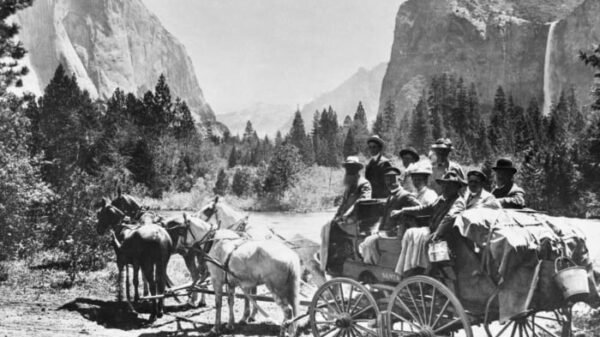Popular Tourist Spot Bans Those Who Don’t Tip
The Importance of Tipping
When visiting a restaurant or using a service, tipping is often seen as a way to show appreciation for good service. It is a common practice in many countries around the world, ingrained in their cultures. However, not everyone adheres to this norm, leading to frustration among those who depend on tips for their livelihood. In an attempt to address this issue, a popular tourist spot has recently implemented a policy that bans visitors who fail to tip.
Introduction of the Ban
The decision to ban individuals who don’t tip was made by the management of a renowned tourist spot known for its breathtaking views, immersive experiences, and exceptional hospitality. The spot, which attracts millions of visitors each year, relies heavily on its service staff to ensure an enjoyable experience for guests. However, the management noticed a concerning trend of guests neglecting to tip, which undermined the morale of the hardworking staff. Consequently, the ban was introduced as a means to encourage visitors to acknowledge and appreciate the efforts put in by the service personnel.
The Impact on Tourism
Although the ban on non-tippers may seem like a harsh policy, it serves a greater purpose of promoting a fair and respectful relationship between tourists and the service industry. While some critics argue that it could potentially deter tourists from visiting this popular spot, others believe that it will enhance the overall experience for both visitors and employees. By encouraging tipping, the management hopes to create an atmosphere of appreciation and recognition for the dedication of their staff, ultimately resulting in a more pleasant visit for tourists.
Challenges and Controversies
The implementation of this ban has not come without its fair share of challenges and controversies. There are concerns about how this policy will be enforced and whether or not it is fair to punish individuals who may come from countries where tipping is not customary. Additionally, critics argue that with rising inflation rates and the financial hardships faced by many individuals, not everyone has the means to tip generously. These concerns highlight the need for open dialogue and flexibility when implementing such policies to accommodate cultural differences and economic circumstances.
Education and Awareness
To address some of the aforementioned concerns and ensure a smooth transition, the tourist spot management has taken several steps to educate visitors about tipping practices. Information boards and brochures have been strategically placed to explain the importance of tipping and how it directly benefits the service staff. Moreover, employees have been trained to engage in polite conversations with visitors about the significance of tipping, fostering a better understanding of its role in the local culture. Through these initiatives, the management aims to bridge the gap between diverse cultural perspectives on tipping.
Positive Reception and Future Possibilities
While the ban on those who do not tip may be controversial, it has received positive feedback from many within and beyond the tourism industry. Those who have experienced the exceptional service provided by the staff understand the value of their hard work and believe that tipping is a small way to express gratitude. This ban has sparked discussions on tipping practices worldwide, encouraging people to reflect on how their tipping habits impact the lives of service workers. With further education and awareness, it is possible that more countries and popular tourist spots will implement similar policies to promote fair compensation and appreciation for service providers.
Conclusion
In the travel and tourism industry, tipping is a sensitive topic that goes beyond mere gestures of generosity. While opinions on tipping vary across cultures, the ban on non-tippers at this popular tourist spot has brought the issue to the forefront. It has sparked conversations about the significance of recognition and financial support for those who dedicate their time and effort to ensuring memorable experiences for tourists. By raising awareness about tipping and enforcing policies, the management hopes to foster a greater appreciation for service personnel and create a more harmonious relationship between tourists and the service industry.
*Source www.wfmz.com




































